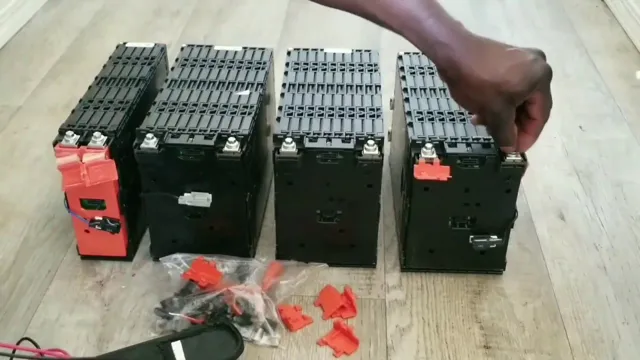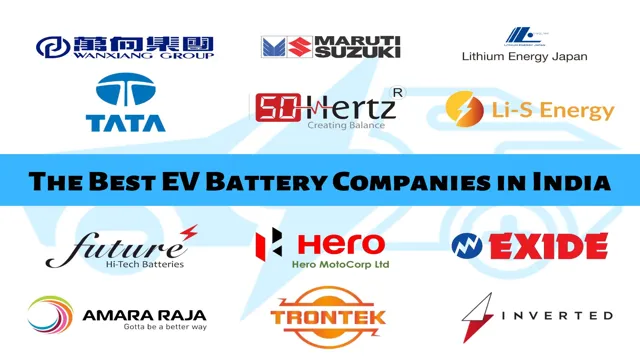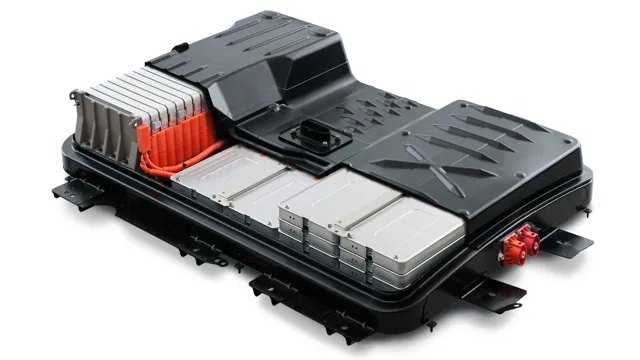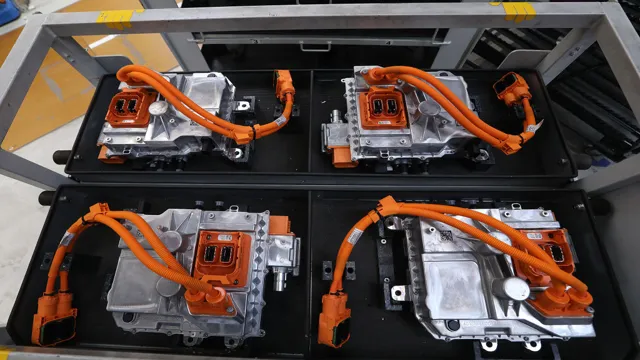Clearing the Confusion: Who Actually Owns the Battery in an Electric Car?
To keep the environment clean and green, electric cars have become a popular choice amongst consumers. These vehicles run on rechargeable batteries, which are crucial for their smooth functioning. However, people often wonder who owns electric car batteries and how they work.
Are they owned and maintained by the car manufacturers or the consumers themselves? Let’s explore this in more detail and find out who holds the key to the battery power.
Car Manufacturers Are Key Owners
If you’re wondering whether you own the battery on an electric car, the answer is not that simple. While you might think that purchasing an electric car means you own the battery, the reality is that car manufacturers are key owners. The battery is actually part of the car, and unless you purchase the battery separately, it is owned by the manufacturer.
However, the terms of ownership may differ depending on the manufacturer and the type of battery. Some manufacturers may allow you to lease the battery, while others may sell it to you directly. In any case, it’s important to understand that owning an electric car doesn’t necessarily mean you own the battery.
It’s always best to consult the manufacturer’s terms and conditions to fully understand what you’re getting into.
Tesla: Leader in EV Battery Production
Tesla is shaping the future of electric vehicle (EV) battery production. While there are other car manufacturers investing in battery technology, Tesla is leading the charge. They are aiming to build the largest battery factory reserved only for electric cars.
Battery technology is the driving force behind the success of EVs, as it determines how far and how fast they can go. With Tesla’s proven ability to produce battery packs at scale, their competitors are sure to follow suit. Not only is Tesla ahead in terms of battery production, but they also have an extensive network of Superchargers for quick-charging on the go.
This infrastructure will only continue to grow and improve as more EV models hit the market. As car manufacturers make the transition to EVs, the quality and quantity of battery production will be crucial in determining the success of their vehicles. Tesla, the leader in EV battery production, is paving the way for a greener future.
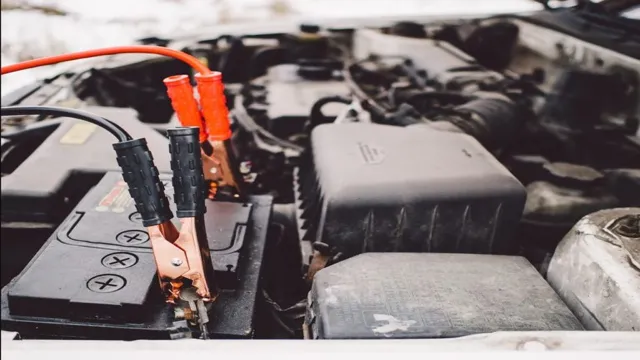
Other Car Brands Also Produce Their Own Batteries
While Tesla is known for making their own batteries, other car brands have also been producing their own. In fact, many car manufacturers are key owners of their own battery production facilities or have formed partnerships with suppliers to produce their own unique batteries. For example, BMW produces its batteries through a joint venture with Samsung SDI, while Volkswagen is developing its own in-house battery production.
This trend is fueled by the growing demand for electric vehicles and the desire for car companies to have more control over their supply chain and technology. By producing their own batteries, car brands can reduce their dependency on battery suppliers and ensure the quality and consistency of their products. While Tesla is often credited as being a leader in battery innovation, other car brands are stepping up to the plate and investing in this crucial aspect of electric vehicle manufacturing.
Consumers May Also Own Battery
If you’re considering purchasing an electric car, you may be wondering if you own the battery. The answer is that it depends on the manufacturer. Some automakers retain ownership of the battery, which means the consumer essentially leases it.
However, others offer the option for consumers to own the battery outright. This can be advantageous because it gives the consumer greater control over the life and maintenance of the battery. It also allows for more flexibility if the owner decides to sell the vehicle at a later date.
In any case, it’s important to do your research and understand the ownership terms before making a purchase.
Leasing vs. Owning: How It Affects Battery Ownership
When considering purchasing an electric vehicle, consumers may have the option to lease or own the battery. While both options have their benefits, owning the battery may provide more advantages in the long run. By owning the battery, the consumer has control over its maintenance and replacement, which can result in cost savings and longer battery life.
Additionally, owning the battery allows for flexibility in terms of charging and usage, as the owner can choose when and where to charge the battery. On the other hand, leasing the battery may result in lower upfront costs and less responsibility for maintenance, but the consumer may be subject to usage restrictions and higher costs over time. Ultimately, it is important for consumers to weigh their options and choose the option that best suits their individual needs.
Aftermarket Options for Battery Ownership
Aftermarket Options for Battery Ownership One of the most promising innovations being explored in the electric vehicle market is the idea of consumers owning the batteries that power their vehicles. This would allow consumers to essentially customize and personalize their EV experience by choosing the type of battery that best suits their needs. Additionally, owning the battery could also provide consumers with opportunities to sell or trade their battery if they no longer need it or want to upgrade to a newer model.
Some companies are offering aftermarket options for battery ownership, allowing consumers to purchase a battery to retrofit their existing vehicle or to buy a battery as a standalone product. This could be particularly helpful for those who may not be able to afford a brand new EV but still want to take advantage of the benefits of electric vehicle technology. As the demand for electric vehicles continues to grow, these aftermarket options could become a valuable opportunity for consumers looking to get involved in the industry.
Battery Replacement and Recycling
When it comes to battery replacement and recycling, many people may not realize that as consumers, they also own the battery. This means that it’s important to understand the lifecycle of a battery, from its production to its disposal. One of the most important steps consumers can take is to properly dispose of their old battery, either by recycling or bringing it to a hazardous waste facility.
Not only does this help protect the environment, but it can also prevent the battery from causing harm to humans or animals. It’s also important to consider replacing old batteries with newer, more efficient models, which can help reduce overall waste and minimize the need for constant replacement. Ultimately, as more people take responsibility for their batteries, we can work towards a more sustainable future that benefits both the environment and consumers.
Regulations and Legislations Concerning Electric Car Batteries
When it comes to electric car batteries, one common question is whether or not the owner actually owns the battery. The answer is yes, for the most part. However, there are regulations and legislation in place that affect how electric car batteries can be managed and disposed of.
As an owner, you have the right to use the battery in your car and replace it when necessary. But because electric car batteries can have a lifespan of around 8-10 years, there are concerns about what happens to them when they need to be replaced. Many countries have regulations in place to ensure proper battery disposal and recycling, as well as guidelines for the manufacturing and development of electric car batteries in general.
So, while owning an electric car battery comes with certain responsibilities and regulations, you do have the right to use it and make decisions about its replacement.
Protection for Consumer Rights and Safety
When it comes to electric cars, battery safety and consumer rights are of utmost concern. This is why there are regulations and legislations in place to protect consumers from potential dangers associated with electric car batteries. For instance, the National Highway Traffic Safety Administration (NHTSA) requires that electric cars meet certain safety standards, including battery crash safety requirements.
Additionally, the Federal Trade Commission (FTC) regulates battery warranties and advertising claims, ensuring that companies do not mislead consumers. While the vast majority of electric car batteries are safe, it’s crucial for consumers to have the necessary protections in place to ensure their safety and well-being. After all, the last thing any driver wants to worry about is the safety of their vehicle’s battery while on the road.
Environmental Regulations for Battery Production and Disposal
When it comes to electric car batteries, there are several regulations and legislations in place to ensure their production and disposal are environmentally friendly. One such regulation is the European Union’s Battery Regulation, which outlines the sustainable design, production, and disposal of batteries. Additionally, the United States has the Battery Act, which establishes rules for the recycling and disposal of certain types of batteries.
Proper disposal of electric car batteries is crucial because they contain toxic chemicals that can harm the environment if not disposed of properly. Furthermore, some countries, such as China, have gone further by implementing regulations that require a certain portion of materials within batteries to come from recycled sources. Overall, these regulations and legislations are essential to ensure that the environmental impact of electric car batteries is minimized, and their life cycle is sustainable.
Conclusion: Understanding Battery Ownership in Electric Cars
In conclusion, while you may technically own the battery in your electric car, it’s important to remember that ownership is only one part of the equation when it comes to these vehicles. The value and functionality of an electric car is largely dictated by the battery’s performance and lifespan, which are dependent on a number of factors including the technology used, charging habits, and overall maintenance. So while you may have a shiny new battery in your EV, it’s ultimately up to you to care for it and ensure that it continues to power your vehicle for years to come.
After all, you wouldn’t want to be left stranded without a charge!
FAQs
Who owns the battery on an electric car?
The owner of the electric car typically owns the battery, but some automakers offer a leasing option for the battery.
Can you replace the battery on an electric car?
Yes, you can replace the battery on an electric car. This is typically done when the battery’s performance starts to degrade.
How long does an electric car battery last?
The lifespan of an electric car battery can vary depending on the make and model of the car, as well as various external factors such as temperature and driving style. However, most electric car batteries are designed to last at least 100,000 miles.
Can you recycle an electric car battery?
Yes, electric car batteries can be recycled. The materials used in the batteries, such as lithium, cobalt, and nickel, can be recovered and reused. Many automakers have established recycling programs for their electric car batteries.
